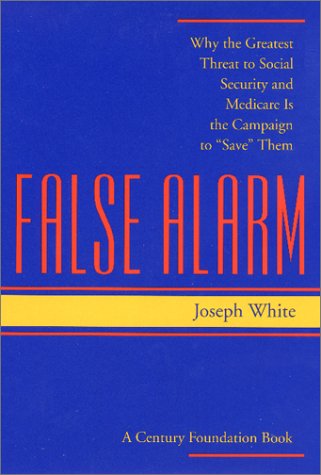Century Foundation Book
1 total work
With the ageing of the US population there is much speculation about the future of the Social Security and Medicare programmes. Will they be able to provide for the increasing number of elderly people? If they can, will their cost endanger the federal budget and the economy? Vocal segments of society are calling for radical reform of these programmes. In this book, Joseph White makes the case against radical reform, advocating incremental change instead. He discusses the rationale for "social insurance" programmes such as Social Security and Medicare and how that relates to fears of out-of-control "entitlements". He looks at important disagreements about how the programmes currently work and how their financing relates to the federal budget as a whole. He argues that changing demographics do pose challenges, but that both equity and the economy would be better served by incremental reforms that preserve the programmes' basic structure than by more radical proposals.
White's foremost contribution is in his aim to cut through the thicket of political rhetoric and fuzzy thinking and get to the heart of the choices the US must now address, demonstrating that there are a number of reasonable options available. In the process White subjects the most prominent proposals for reform - including his own - to a level of scrutiny which should benefit all readers who care about the future of these programmes.
White's foremost contribution is in his aim to cut through the thicket of political rhetoric and fuzzy thinking and get to the heart of the choices the US must now address, demonstrating that there are a number of reasonable options available. In the process White subjects the most prominent proposals for reform - including his own - to a level of scrutiny which should benefit all readers who care about the future of these programmes.
